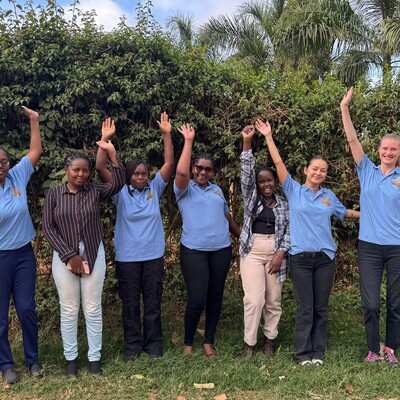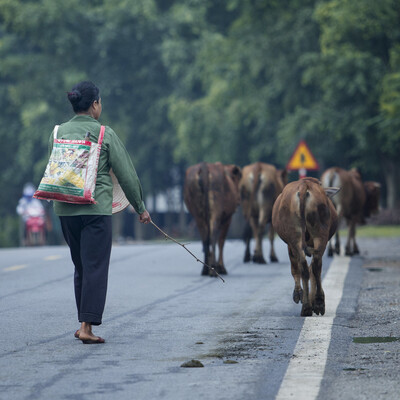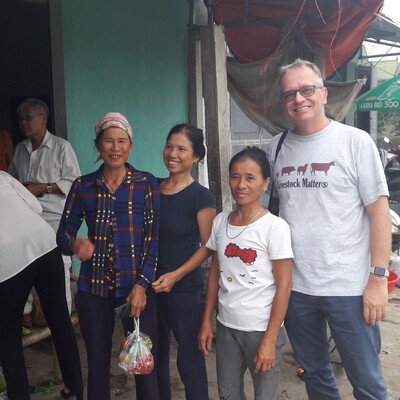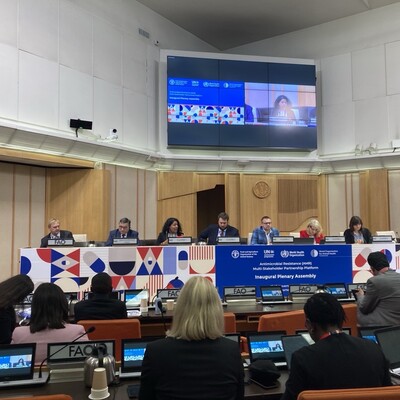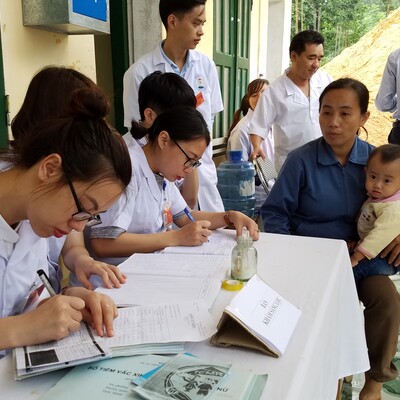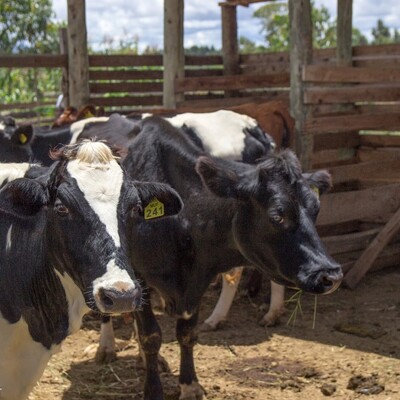
HORN: Unleashing the Power of Collaboration in One Health Research for the Horn of Africa
Refurbishing the Oloitoktok Laboratory – Kajiado County, Kenya
As part of the research capacity assessment at the University of Nairobi, the HORN project funded the complete refurbishment of the Oloitoktok Laboratory, located in Kajiado County, Kenya and the purchase of laboratory equipment to turn the space into a lab for One Health research and as an crucial space for diagnosing animal diseases in southern Kenya.
Local contractors refurbished the site and provided plumbing and electrical services. Laboratory equipment was purchased and shipped from the UK and a local Kenyan supplier did the refurbishment of the space.
Through these efforts, the lab is now fully functioning, acting as a space for research in the country. PhD students and post-grads conduct critical research in One Health and the lab serves as an important service for the community. The University of Nairobi has trained front-line animal health workers to identify disease syndromes in the area’s livestock and link them to the lab diagnostic testing. Veterinarians are then able to take samples and diagnose animal diseases.
Dismas Ongore, Professor of Public Health at the University of Nairobi, notes the importance of this laboratory for both the university and the community at large. It offers a unique opportunity for diagnosis and surveillance of common domestic and wildlife zoonotic disease and provides training to the local community and researchers.
Mapping the liver fluke (Fasciola hepatica) Distribution in Butajira and Gilgel Gibe, Ethiopia – A slimy One Health issue
Fascioliasis, a parasitic infection caused by the common liver fluke, is a disease that is spread from sheep or cattle to humans, through the intermediary host of freshwater snails. Scientists at the School of Public Health in Addis Ababa and Jimma University, Ethiopia set out to investigate freshwater snails' abundance, distribution and infections status, and the prevalence of human and animal fasciolosis in two health and demographic surveillance sites in Ethiopia. Through the funding received from the sandpit competition, the scientists were able to make significant findings on this major One Health issue.
The studies underscored the importance of comprehending snail distributions and infection patterns to implement strategies for preventing and controlling the disease effectively. These findings emphasized the necessity of land-use planning and safeguarding aquatic habitats against pollution and human activities. Furthermore, the research revealed that approximately 0.5-1% of the human population suffered from fasciolosis, while the disease affected 29% of cattle and sheep, along with 6% of goats. Lead researcher, Samson Wakuma, from the School of Public Health, Addis Ababa University, also pointed out that the results highlighted a need for more public awareness campaigns regarding the disease. Future research endeavors should prioritize education and its community-wide impacts.
A summer school in the field – 5 days at the Mpala Research Conservancy
The first One Health Summer Field School of the HORN Project took place at the Mpala Research Conservancy in central Kenya from the 11th to 15th of March 2019. The purpose was to provide intensive training for early career scientists from the Horn of Africa in various interdisciplinary skills related to One Health implementation.
The summer school introduced attendees to various skills necessary for multidisciplinary projects. It focused on ‘in the field’ data collection, analysis and processing. Daily sessions centered around specific themes led by experts, including vector biology, microclimate, animal health and natural ecologies.
One example of a training session was studying animal health, where participants learned about sample design and field data collection for prevalence surveys and participatory epidemiology for understanding states of domestic animal health. They were provided with a scenario on a vector-borne disease in cattle, then travelled to a village to collect data, and then were asked to process and analyse the results.
In addition to thematic sessions, there were opportunities to develop soft skills relevant to scientific research, such as critical appraisal for scientific papers, CV writing, poster design, scientific presentations and data organization.
‘The summer school was an amazing opportunity to be immersed in a landscape with students and realise how elements of that landscape were linked in so many ways, culminating in an extraordinary learning and teaching experience,’ said Eric Fevre, Research Lead for Kenya hub of the HORN project, Professor of Veterinary Infectious Diseases and Global Health at the University of Liverpool and joint appointee at the International Livestock Research Institute (ILRI).















